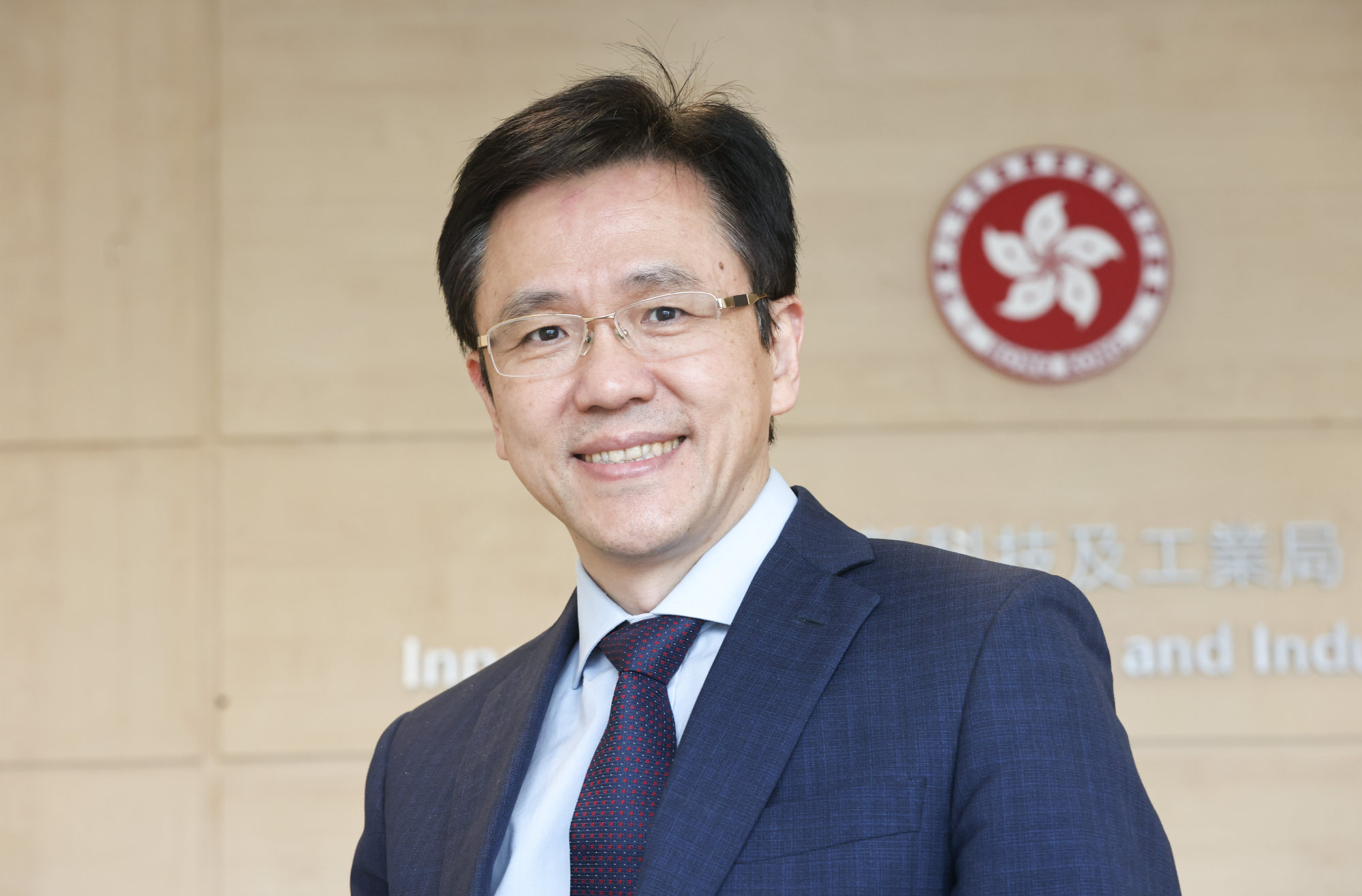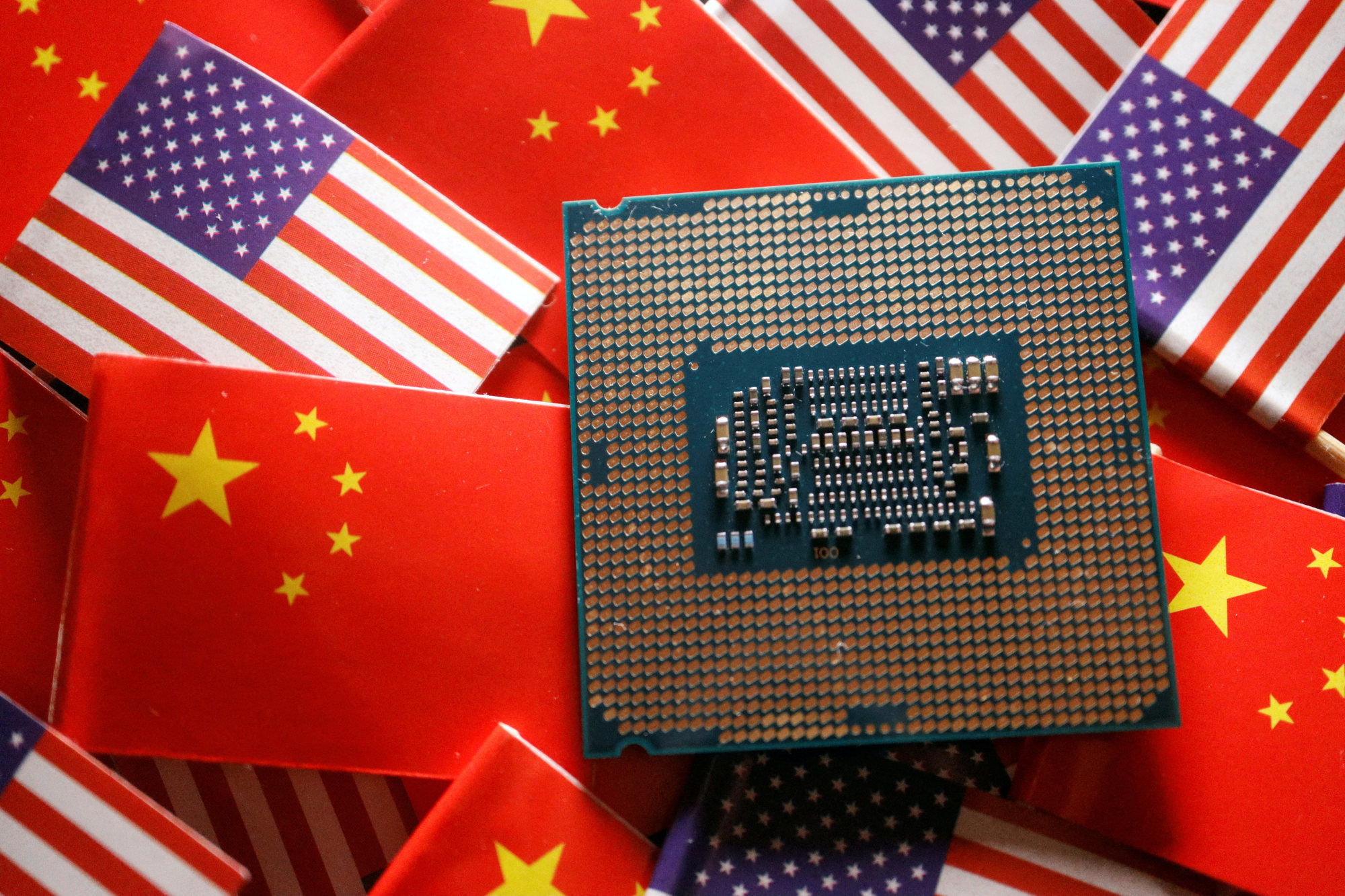
Hong Kong innovation chief says US investment ban on Chinese tech will bring ‘short-term difficulty’ to city’s talent drive, financing for local firms
- Sun Dong however urges faith in city’s development ambitions, stressing move will not change global development pattern of ‘rise of the East and decline of the West’
- He vows to counter US measures by broadening financing sources for start-ups and considering more direct support for key tech firms
Hong Kong’s innovation chief on Saturday conceded Washington’s restrictions on US investments in sensitive Chinese technologies would bring “short-term” difficulty to his government’s drive to attract businesses and talent, as well as financing for local firms.
Secretary for Innovation, Technology and Industry Sun Dong pledged to counter the US measures by broadening financing sources for local start-ups and considering more direct monetary support for strategically important tech firms.
US President Joe Biden’s executive order unveiled on Wednesday seeks to restrict US venture capital and private equity investments in Chinese firms in semiconductors and microelectronics, quantum information technologies and certain artificial intelligence systems.

“In the short term, especially in terms of investment, it can’t be ruled out that some of our innovation and technology companies will encounter a bit of difficulty in financing,” Sun told reporters after a radio interview.
He also told the radio programme that the government might also face short-term challenges in bringing in leading technology firms and talent, a bid that is part of Chief Executive John Lee Ka-chiu’s economic policy.
But Sun reaffirmed his faith in the city’s tech ambitions in the long run, saying: “The revolution of a new generation of technologies and industries will not stop because of this. I believe it will not change the global development pattern of the rise of the East and the decline of the West.”

The minister pledged to tap into more funding sources for tech firms in Hong Kong, such as venture capital from mainland China. The government will also ramp up financial support for strategically key tech firms, although Sun said local officials had to take bolder approaches to compete with other places.
“In Singapore, the mainland, or even Europe and the US, key enterprises receive [government] money as subsidies, not as investment. But as the Hong Kong government has not adopted such a culture, we are conducting studies on the practice of offering cash subsidies,” he said.
Lee’s administration has set up a HK$5 billion (US$639.6 million) Strategic Tech Fund, with another HK$3 billion earmarked in this year’s budget plan to enhance basic exploration in frontier fields such as artificial intelligence and quantum technology.
Local lawmakers have previously called for more government support in start-up financing as they worried that the United States’ measures would undermine the appeal of Hong Kong tech firms to investors, leading some companies to exit the city.
Sun meanwhile said the academic circle had been affected by the fallout from the US-China tech war, adding university professors had for years faced “a lot of restrictions” when applying for visas to attend overseas conferences.
While Hong Kong also faces a high turnover rate in researchers and academics, the technology chief on Saturday gave assurance that efforts were being made to stem the academic brain drain.
“We must continue to uphold Hong Kong’s international advantages, and continue to maintain a cultural and business environment that everyone feels is relaxed and free,” he said.

